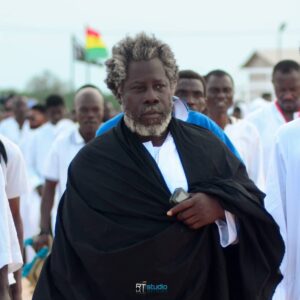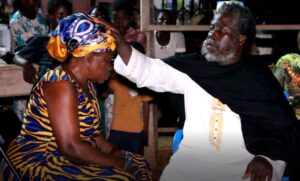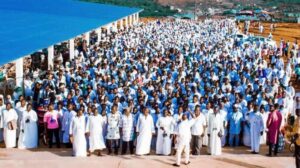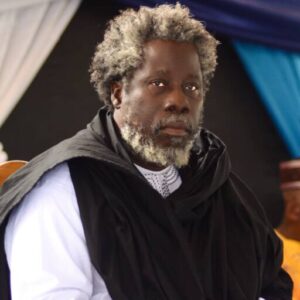The Attributes of The Most High God (RABBI) as Glimpsed Through the Names Used in the Exaltations by the Asomdwee Ntonton Som
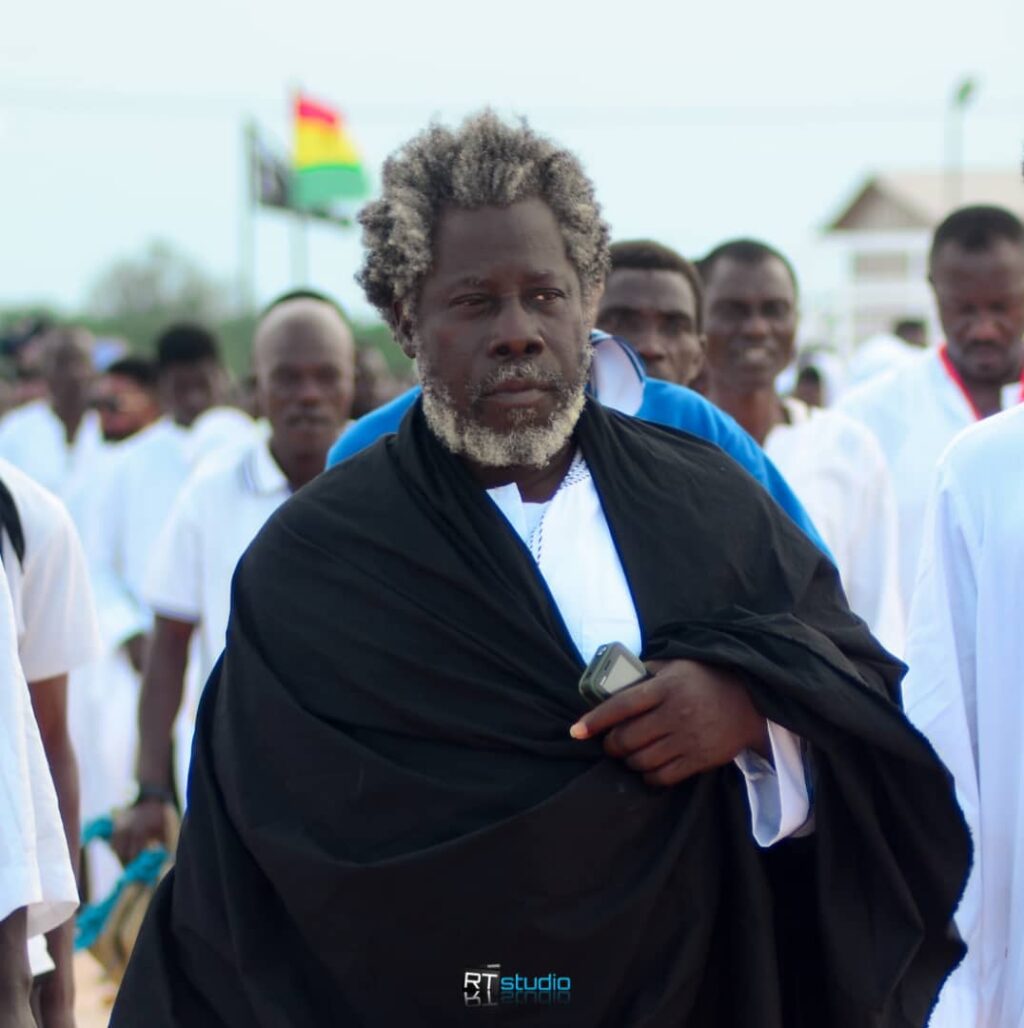
The Attributes of The Most High God (RABBI) as Glimpsed Through the Names Used in the Exaltations by the Asomdwee Ntonton Som
Written by Mensah Adinkrah, Ph.D.
Introduction
Asomdwee Ntonton Nkabom Som is a Religion that has been established in Ghana since 2009. Although the Religion is ultimately intended for global adherence, it is currently headquartered in Ghana—a country purportedly chosen by The Most High God, RABBI, as the locus for establishing one of His true religions. The founder of Asomdwee Ntonton Nkabom Som is Okronkronyi Nyame Somafo Yawoh. According to Him, the true and accurate name of the Most High God is RABBI. He maintains that all references to RABBI as “teacher” or as a figure synonymous with Jesus are grave theological errors.
According to Okronkronyi Nyame Somafo Yawoh, RABBI is the Creator of the heavens, the earth, and all that they contain. He further asserts that RABBI selected three nations on earth in which to establish His true Religion: biblical Israel, Saudi Arabia, and present-day Ghana. Salvation and entry into the heavenly kingdom, He says, can only be attained through adherence to one of these three divinely instituted Religions.
Exaltation as a Form of Worship
The primary mode of worship in Asomdwee Ntonton Som is exaltation, a practice that involves repeatedly invoking the names of RABBI. According to Okronkronyi Nyame Somafo Yawoh, exaltation is the highest and most authentic form of worship, as it is the method employed by the Elijahs, the most powerful spiritual entities domiciled in the Heaven of Heavens.
According to Okronkronyi Nyame Somafo Yawoh, Himself an Elijah, in the beginning, RABBI existed alone in His Kingdom. One day, He commanded nine spirits to emerge from within Himself. These spirits were brought forth in a vast spiritual vessel, or receptacle, named Yawoh, which is said to be the size of a continent. Yawoh is invoked as a spiritual force that mediates human supplication to RABBI. The nine spirits who emerged are referred to as The Elijahs. According to the teachings, The Elijahs are not created beings; they are consubstantial with RABBI and emerged solely by His command. Notably, RABBI did not create the heavens and the earth until many years after the emergence of The Elijahs. The creation of the cosmos was a collaborative act between RABBI and The Elijahs. The order of creation began with the Etumfo, Esunsum and Abofo
According to Okronkronyi Nyame Somafo Yawoh, Exaltation is the exclusive form of worship practiced in the divine realm in the Heaven of Heavens. As RABBI sits enthroned in the heavenly kingdom, The Elijahs and other celestial beings continually circle His throne, exalting Him by calling His names unceasingly. This form of worship, according to Okronkronyi Nyame Somafo Yawoh, was first introduced on earth by a prophet named Akan, who emerged after the flood in the time of Noah and before the patriarch Abraham. Akan, who was himself one of The Elijahs, instituted exaltation on earth as the mode of worship that reflects the divine order in the Heaven of Heavens.
Okronkronyi Nyame Somafo Yawoh asserts that exaltation is superior to all other forms of worship, including salat, the prostrational prayer of the Abrahamic traditions. According to Okronkronyi Nyame Somafo Yawoh, although biblical figures desired to engage in exaltation, it was not granted to them. In Matthew 6:9, for instance, Jesus teaches the Lord’s Prayer, which reflects a desire to exalt the divine name: “Our Father who art in heaven, hallowed is thy name.”
Okronkronyi Nyame Somafo Yawoh interprets this as an unfulfilled longing for exaltation. RABBI, He asserts, desires Ntonton—exaltation—above all else. Whereas salat honors God, exaltation magnifies His glory. Psalm 34:3 serves as a biblical basis for this: “O magnify the LORD with me, and let us exalt his name together.”
Every divine Religion, according to , Okronkronyi Nyame Somafo Yawoh, is associated with a sacred language. Judaism’s sacred language is Hebrew, Islam’s is Arabic, and the sacred language of Asomdwee Ntonton Som is Akan, specifically Fante. Exaltation is said to be most potent when the divine names are spoken in Fante. Its spiritual efficacy is reduced when rendered in other Akan dialects and is virtually nullified when spoken in English.
Abrahamic Religions and Their Forms of Worship
According to Okronkronyi Nyame Somafo Yawoh, Abraham descended from the angelic realm and thus instituted an angelic form of worship on earth: salat, which involves bowing and touching one’s forehead to the ground. Abraham’s sons, Ishmael and Isaac, each established a Religion. Ishmael founded Islam in Saudi Arabia, instituting salat five times daily. Isaac continued the tradition in Israel with salat three times daily. Although this angelic form of worship is powerful, it is deemed inferior to exaltation. On a scale of spiritual potency, while salat may register at level 70, exaltation is ranked at the full scale of 100.
A Sample of the Names of RABBI Used in Exaltations
Nyame
Derived from the root Nya (to acquire or possess) and mee (to be satisfied), Nyame conveys the idea of a God who satisfies—one who fulfills desires upon being attained. Thus, Onyamee Nyame a wo nya no a na wamee expresses that God is the one who satisfies upon being obtained. Expressed differently, the name Nyame emphasizes possession and intimacy: “You have me.” Possessing RABBI implies access, influence, and the fulfillment of one’s aspirations. Nyamee underscores divine proximity and responsiveness.
Nyankopon
Nyankopon is an emphatic declaration of divine monotheism. The term combines Nyame (God), Koro (One), and Pon (Mighty), signifying “the One Mighty God.” The theology of Asomdwee Ntonton Nkabom Som firmly rejects polytheism. Onyame koro a woye pon captures the image of a God who is both singular and supremely powerful.
Enyidado
A synonym for Anidaso (hope). RABBI is depicted as a God of hope—one in whom believers can trust for deliverance and ultimate salvation.
Obotantsim
From Obotan (rock), this name casts RABBI as a solid, immovable force. Like a rock, RABBI is dependable, enduring, and a bulwark against adversity.
Ogyaframee
This name depicts RABBI as a “consuming fire.” It highlights divine power and purification, referencing the notion that RABBI is made of spirit and fire—fire that protects, purges, and overwhelms.
Osorsornyi
Osorsornyi denotes the God who dwells in the highest heaven. Osoro means “above” or “sky”; the reduplication (osorsor) intensifies it to “the highest above.” Ni denotes origin. Hence, Osorsornyi is “the one who comes from the highest above.”
Akasapreko
From kasa (to speak) and preko (once), this name emphasizes RABBI’s omnipotence: He speaks but once, and it is done. There is no need for repetition. The divine command of RABBI is immediate and irrevocable.
Etwapar
This is a metaphorical invocation of RABBI as a whirlwind. In Akan cosmology, the whirlwind is mysterious and awe-inspiring—its sudden and untraceable appearance serves as a symbol of divine mystery and might.
Daapem
Literally translating to “a thousand years,” this RABBI name gestures toward RABBI’s eternality. RABBI is conceived as everlasting, transcending temporal bounds.
Conclusion
The exaltations in Asomdwee Ntonton Nkabom Som offer a profound window into the theological attributes of the Most High God, RABBI. Each name employed in the exaltatory ritual reveals a facet of RABBI’s character—His satisfaction-giving nature, His singularity and might, His role as rock and fire, and His eternal dominion over creation. Together, these divine names form a liturgical theology that sets Asomdwee Ntonton Som apart, particularly in its claim to possess the most powerful form of worship available to humankind.

